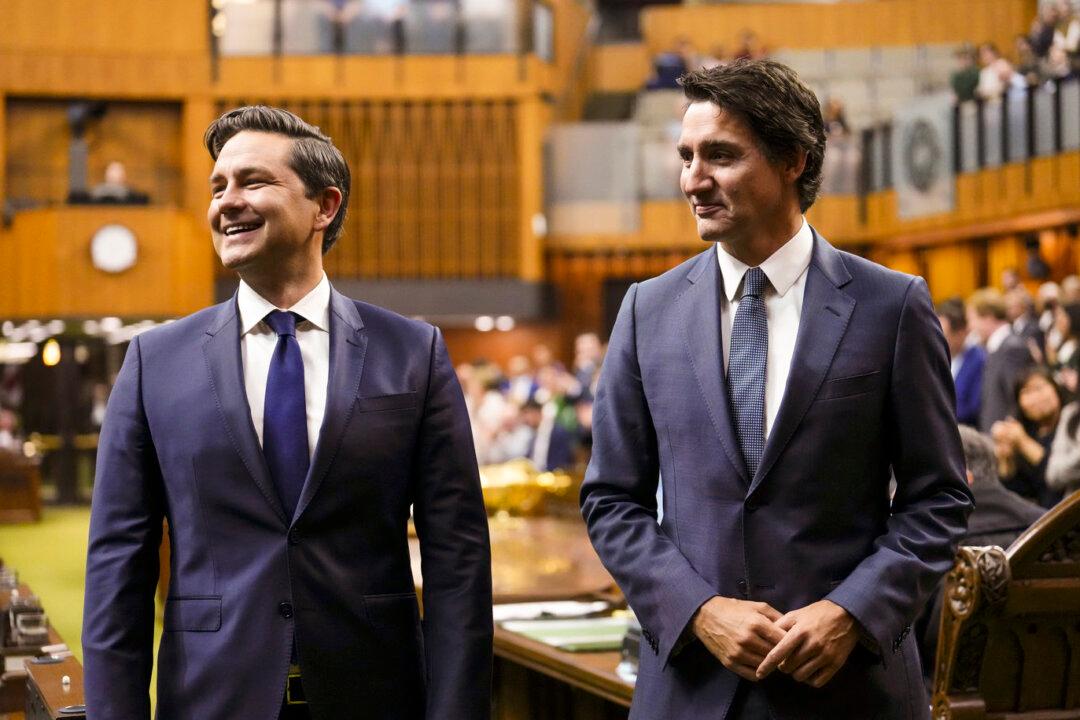Prime Minister Justin Trudeau and Conservative Leader Pierre Poilievre picked up where they left off as the House of Commons reconvened, arguing about the carbon tax and trading blows about the state of the country.
“After nine years of NDP-Liberals, taxes up, costs up, crimes up, times up. And now [Trudeau] wants a 300 percent carbon tax hike, all the way up to 61 cents a litre,” Poilievre said during question period on Sept. 16.





